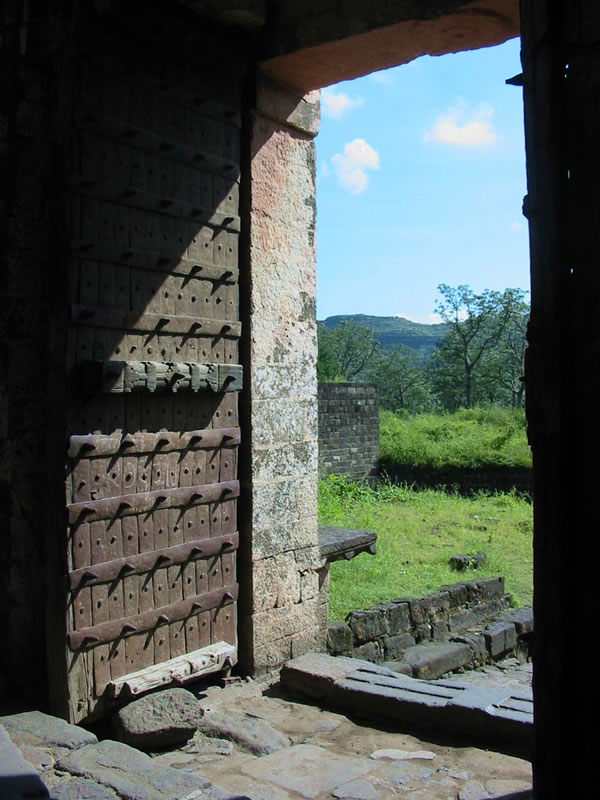FWP:
For general comments on this most unusual ghazal, see {66,1}.
The first line evokes the ghazal convention that the lover
prostrates himself before the beloved's door, repeatedly pressing his forehead
to the doorsill in passionate submission. But in this case, the 'stone' is
not the doorsill, but the stone of a tomb. And while the lover counts on his persistence
to wear away the doorsill (for an example, see {43,6}),
in this case Ghalib considers the outcome of the contest uncertain. Which
will be worn away first, the 'doorsill' of the tomb, or his forehead? In either case, it's the
finiteness of the process that provides his only consolation.

Nazm:
That is, my forehead-wearing-away at your door is not for always. In a few days either the stone will wear away, or there won't be a head left at all. And 'door' refers to Arif's tomb. (65)
== Nazm page 65